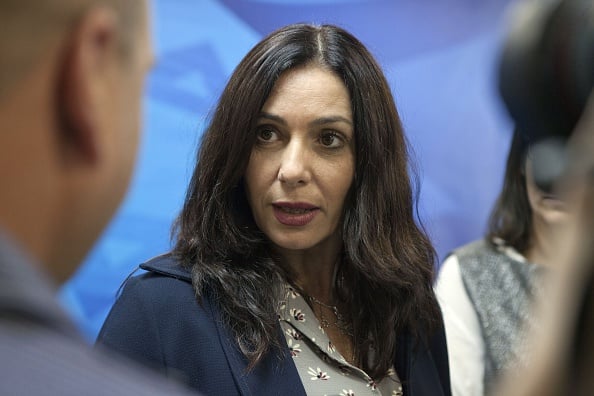
In a last minute U-turn before making Israel’s eligibility for the European Union’s “Creative Europe” funding program official, it looks like Israel will not be joining anytime soon.
This past Sunday, Israeli minister of culture and sports Miri Regev announced that she was pulling her support from a proposal to join the cultural funding program. In addition, the secretariat of the Israeli cabinet announced that the topic will be removed from the cabinet’s Sunday meeting’s agenda.
The cancellation came after a report by the daily paper Haaretz revealed that the right-leaning minister Regev had intended to sign off a proposal which excludes cultural programs in the settlements from receiving European grants, as they are not considered as part of Israel by the European Union.
According to Haaretz reporter Barak Ravid, if the Israeli cabinet gives a green light to the proposal, it would in effect accept a “European boycott of the settlements in the West Bank, East Jerusalem, and the Golan Heights.”
On Sunday, Israeli prime minister Benjamin Netanyahu was meant to present the proposal on joining the EU’s cultural and media initiative to the cabinet. A draft was sent out to all members of the cabinet already on Wednesday, ahead of Sunday’s meeting. The proposal states that minister Regev, as well as finance minister Moshe Kahlon and economy and industry minister Eli Cohen are supporting it.
Haaretz, which published the text of the proposal on its Hebrew-language website, revealed that it included explanatory notes to cabinet members, pointing out that the agreement comes with a territorial clause that excludes cultural institutions and artists based beyond Israel’s 1967 borders, before the Six-Day War.
Following the newspaper’s report, Regev pulled back from supporting the proposal, and spoke to the cabinet, saying, “I do not have to pursue anything that I do not agree with. Any international agreement with Israel must include the West Bank,” before announcing that the issue was dropped from the agenda.
An agreement with the EU that includes a similar clause regarding the West Bank was signed by Israel in 2014; titled Horizon 2020, the program involves joint projects and collaborations in research and development.
The notes sent out to ministers ahead of the cabinet meeting point to the 2014 agreement explaining that, similarly to Horizon 2020, Israel would add a letter to the Creative Europe agreement stating its stance on the settlements; it is mainly a symbolic gesture meant to enable Israel’s participation despite the differences in views.
By joining the Creative Europe funding program, Israeli cultural institutions as well as individual artists would have been eligible to apply for EU grants for collaborative projects organized with other institutions or individuals in a European member state in the fields of theater, dance, visual arts, film, as well as funding for translating works from Hebrew to European languages and for promotions of films at European festivals.
The program is open for a list of 10 countries that are not European Union member states. The EU suggested that Israel join the program already in 2013, and since 2014, the Israeli government has been signaling its interest in joining.
Countries which become recipients in the program contribute to the funding pool with an annual fee based on their GDP. For Israel, the fee would be €1.28 million for 2017.
The foreign ministry spokesman Emmanuel Nahshon told Haaretz that the proposal did not signify a “change in Israel’s attitude toward the territorial issue as it appears in the draft agreement, and appeared in similar agreements in the past between Israel and the EU.”
The last-minute backtracking has been widely criticized by the Israeli arts community. In an email to artnet News, Maayan Sheleff, artistic advisor and curator of the international residency program Art Cube Artists Studios in Jerusalem, reacted to Regev’s pulling her support from the agreement, saying:
“We were very disappointed to hear that the minister of culture decided to withdraw from signing on the ‘Creative Europe’ agreement.
We at the Art Cube Artists Studios Jerusalem have worked to establish collaboration with 10 European institutions for about a year, and were planing to submit a request for this four-year grant program.
We think that particularly these days, when international collaborations are very hard to come by, this is an immensely important program, and it would be a shame if the government chooses to give it up rather than finding a way to make it happen. By doing so they contribute to the segregation of Israel.”